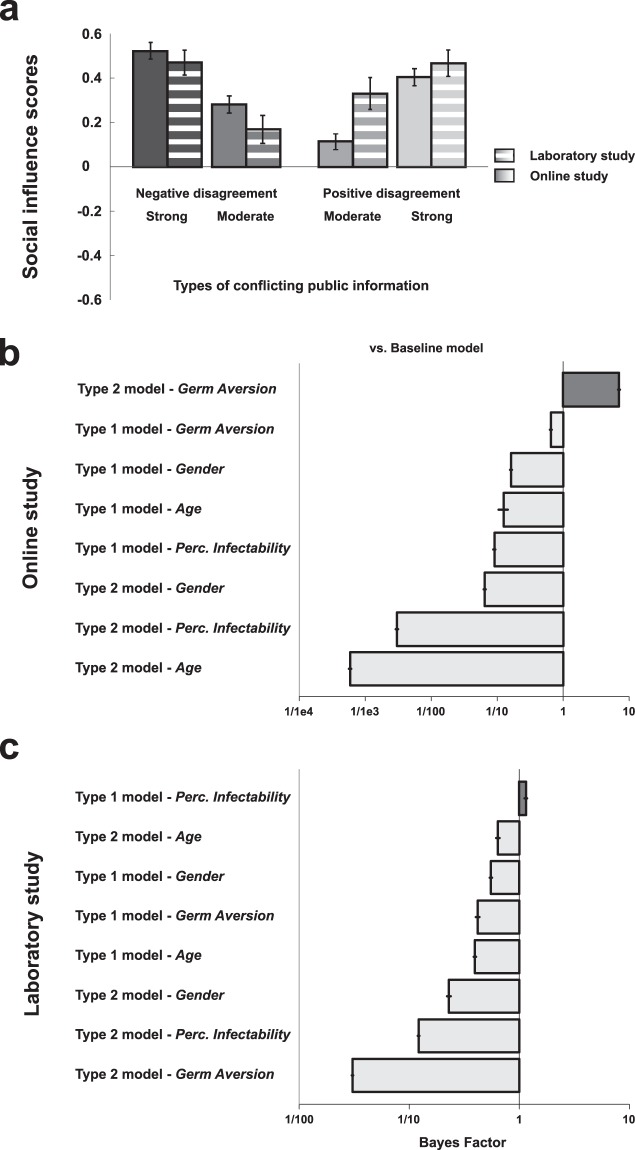Figure 2.
Behavioural results. (a) Effects of disagreement types on social influence scores (±SEM) in the online and the laboratory study. Positive and negative social influence scores (y axis) indicate that participants adjusted their ratings towards or away from public information. (b) Online study and (c) Laboratory study: Bayesian analyses of models with and without indicators of perceived vulnerability to extrinsic morbidity risks (Germ Aversion and Perceived Infectability), age or gender as predictor of social influence score (columns). The baseline model only includes disagreement valence and disagreement strength as within-subject factors; alternative models include indicators of perceived vulnerability to extrinsic morbidity risks, age or gender either as a main effect (type 1) or as a term interacting with disagreement valence and disagreement strength (type 2). A Bayes Factor >1 indicates greater evidence for the alternative model.

